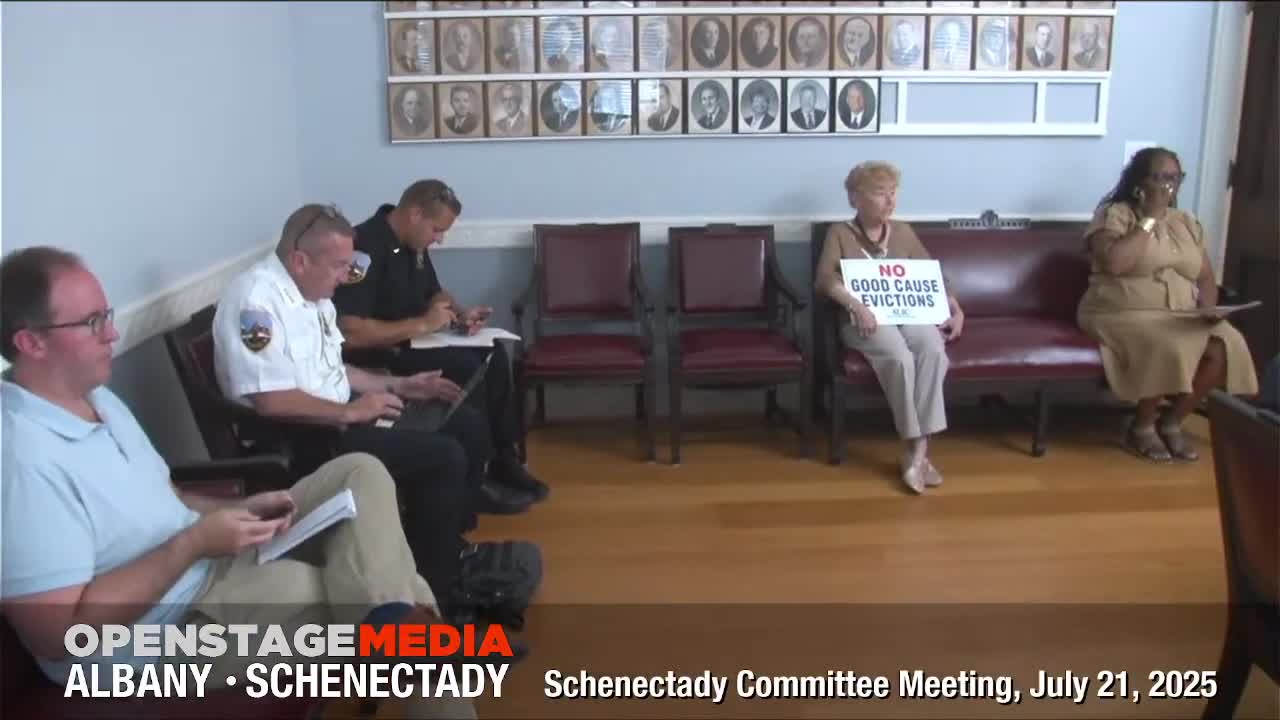Finance committee accepts 2023 CAPER, adopts HUD allocations and accepts lead‑hazard grant; authorizes Continuum of Care contract
Get AI-powered insights, summaries, and transcripts
Subscribe
Summary
The Schenectady City Council finance committee on July 21 voted to accept the city’s 2023 Consolidated Annual Performance and Evaluation Report (CAPER), establish a public comment period and set a public hearing for Aug. 11, and to adopt HUD 2025–26 allocations and several HUD grant awards.
The Schenectady City Council finance committee on July 21 voted to accept the city’s 2023 Consolidated Annual Performance and Evaluation Report (CAPER), open a public comment period and call a public hearing for Aug. 11.
The action came at the start of the committee meeting, when the staff presenter outlined three requests: acceptance of the CAPER, establishment of a public comment period and scheduling a public hearing. A motion to call the public hearing and a separate motion to accept the CAPER each passed on unanimous voice votes.
The committee then considered the city’s U.S. Department of Housing and Urban Development allocations for the 2025–26 program year and voted to adopt a resolution authorizing acceptance of the funding. The presenter reported the program formula amounts for 2025–26 as: $2,050,241 for Community Development Block Grant (CDBG); $1,187,096.39 for HOME Investment Partnerships Program (HOME); and $184,656 for the Emergency Solutions Grant (ESG). Committee members did not register opposition and the motion to accept the allocations passed on a voice vote.
Also before the committee was the city’s Notice of Funding Availability (NOFA) award for HUD’s lead‑hazard control and healthy homes program. Staff said the award is a multi‑year grant that will be administered locally; the presenter described it as a multi‑year HUD lead‑hazard grant (speaker variously described the award as a four‑year grant and then referenced work over multiple years). The presenter said the program has historically been administered in partnership with the county and that the city will perform intake in‑house going forward. Committee members were told the program met federal benchmarks in recent years and that the program completed 28 homes during the prior year under the county’s administration. The committee voted to accept the lead‑hazard grant; committee discussion noted the in‑house administration will add recurring lines for travel, marketing and an intake staff position with an estimated local financial impact of about $124,000 per year.
Finally, the committee moved forward a Continuum of Care contract to support shelter beds run by the Capital Region YMCA. Staff said the CoC award will support 20 shelter beds and related administrative costs; the committee voted to move the item forward unanimously.
Why it matters: The CAPER acceptance starts the formal public‑comment and hearing process on the city’s HUD program performance, while the allocations and grant acceptances determine how federal housing, homelessness and lead‑remediation funds will be spent locally in the coming program year. Moving intake for the lead program in‑house shifts operational responsibilities to city staff and creates modest new recurring budget lines the committee flagged during discussion.
What happened next: Committee members approved each item by voice vote. A public hearing on the CAPER was scheduled for Aug. 11 and the public comment period was opened.
